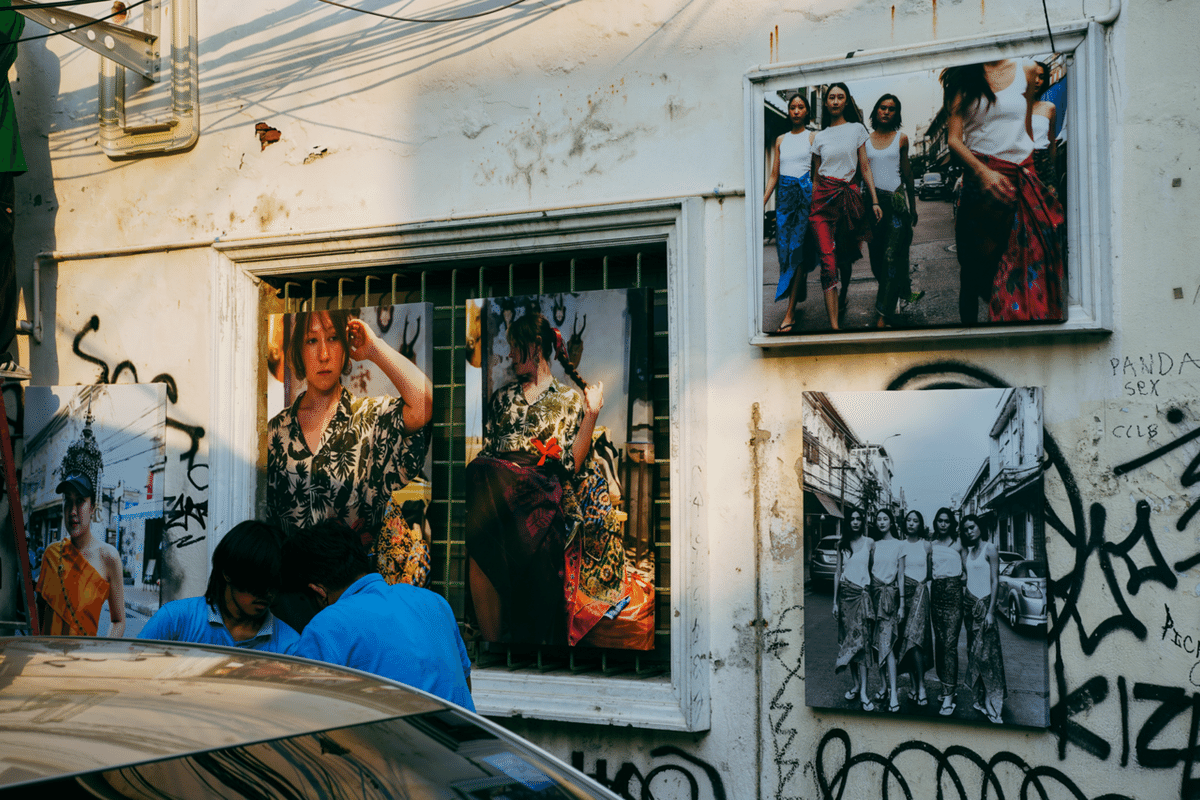
人生とはリミックス Life is a remix
今週もバンコクにいます。
I'm still in Bangkok this week.
タイは夏真っ盛りで、連日38度を超える猛暑が続いています。人間の体温以上の気温に包まれる日中は、外を歩くのは危険なため、ショッピングモールを転々としながら、日中は涼を求めています。
Thailand is in the height of summer, with daily temperatures exceeding 38 degrees Celsius, which is more than the human body temperature. It's dangerous to walk outside during the day when enveloped in such heat, so I spend my time hopping from one shopping mall to another to stay cool.


4月12日から15日にかけては、タイの旧正月にあたるソンクラーン祭りが行われます。ソンクラーンという語はサンスクリット語で「移る」を意味し、太陽が白羊宮(Aries)に移動することを指しています。これは、12ヶ月の周期が終わり、太陽暦による新年が始まることを表しています。この祭りの目玉は「水かけ祭り」で、仏像や年長者に水をかけることで、敬意を表するとともに、猛暑を和らげるのが風習となっています。
From April 12 to 15, the Songkran Festival, which corresponds to the Thai New Year, will be held. The term "Songkran" comes from Sanskrit, meaning "to move," and refers to the sun moving into Aries. It signifies the end of the 12-month cycle and the start of a new year according to the solar calendar. The highlight of the festival is the water-throwing ceremony, where pouring water on Buddha statues and elders is a custom to show respect and alleviate the fierce heat.
そんなこともあり、バンコクには現在多くの旅行客が訪れているようです。マスターカードの発表によると、2019年の世界の渡航先ランキングで、バンコクは年間約2,278万人もの訪問者を記録し、2位のパリを360万人以上も引き離すなど、国際色の強い都市です。先週お伝えした通り、街中を歩いていると、至る所で英語を目にし、英語さえあれば日常生活が送れるほど、グローバル化が進んでいます。
As such, many tourists are currently visiting Bangkok. According to Mastercard, Bangkok recorded approximately 22.78 million visitors in 2019, topping the global travel destination ranking and surpassing second-place Paris by over 3.6 million visitors, making it a city with a strong international flavor. As mentioned last week, walking around the city, you'll see English everywhere, and it's so globalized that you can live your daily life with just English.


そうした環境の中で、自分がどこにいるのかよくわからなくなることが多々あります。英語も聞こえるし、タイ語も聞こえるし、時には日本語も聞こえたり。人間はコミュニケーションを通して地球上に広がってきましたが、言語と自己認識は密接に関係しているのも事実です。母国語で話す時の自分と、外国語で話す時の自分が異なるのはよくあることだと思いますが、最近、自分が日本語で話している時の自分と、英語で話している時の自分が、どちらが「本当の」自分なのか分からなくなってきました。
In such an environment, I often find myself unsure of where I am. I hear English and Thai, and sometimes even Japanese. Humans have spread across the Earth through communication, and it's true that language and self-recognition are closely related. It's common to feel like a different person when speaking your mother tongue compared to a foreign language, but lately, I've been losing track of whether the "real" me is the one speaking Japanese or English.


加えて、日本語と英語のいくつもの本を並行して読み進めているので、何語で読んだ本なのか、どの本で読んだことなのか、全てがごちゃ混ぜになっています。そうなると、もう自分がどこにいて、自分が誰なのかさえ分からなくなってきます。全てが正しいようで、全てが間違っているようにも感じられる不思議な状態に陥ります。しかし、この混沌の中に新しいものが生まれてくるのかもしれません。まるで人生が「リミックス」のようだとさえ感じられます。様々な要素が入り交じった中から、新しいことや、新しい自分が生まれてくるのかもしれません。もしかしたら、私たち自身がクリエイティブなものとして存在しているのかもしれません。
Furthermore, reading multiple books in Japanese and English concurrently has jumbled up what I read in which language and from which book. This confusion extends to not knowing where I am or who I am. Everything seems right yet wrong, a curious state to be in. However, new things might be born out of this chaos. It feels as if life is a "remix," where a new self or new insights might emerge from a mix of various elements. Perhaps we exist as creative beings.


ごちゃ混ぜのリミックスの世界では、自分のアイデンティティや、言語と思考の関係について、より深く考えさせらるような気がします。国境を越えて行き交う人々、文化の交流、言語の共存など、グローバル化が進む中で、一人一人がどのように自分を見出していくのか。答えは簡単ではありませんが、その探求こそが、私たち現代人の大きな課題なのかもしれません。
In this remixed and muddled world, I find myself pondering deeper about my identity, the relationship between language and thought, and how each of us discovers ourselves amidst the crossing of borders, cultural exchanges, and coexistence of languages as globalization progresses. The answer isn't simple, but this quest might be a significant challenge for us modern people.

